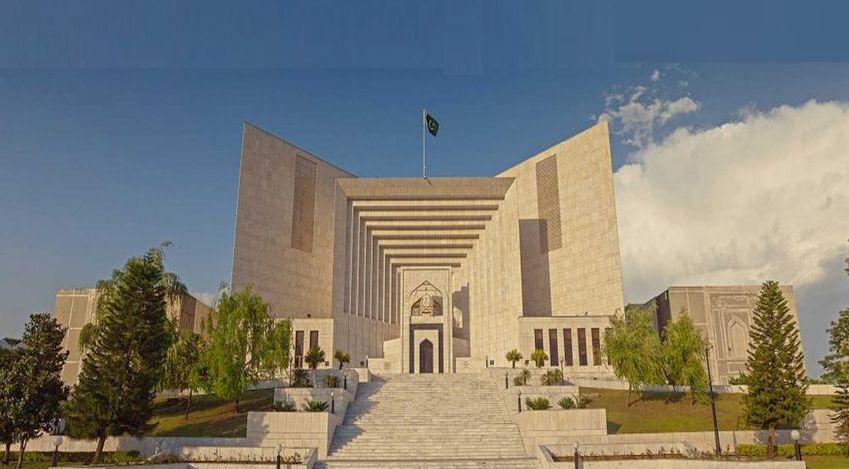Even Individual Grievances could raise Public Interest Questions if the significant Constitutional Rights are involved --- Supreme Court of Pakistan
Islamabad 31-10-2024: In a significant judgment, Mr. Justice Syed Hasan Azhar Rizvi of the Supreme Court of Pakistan provided an in-depth analysis on the constitutionality of amendments made to the National Accountability Ordinance (NAO) and highlighted essential principles of judicial comity and respect among justices. This judgment diverged from the majority opinion penned by Mr. Chief Justice Qazi Faez Isa, with Mr. Justice Syed Hasan Azhar Rizvi supporting the outcome but offering alternative reasoning on several critical issues.
Mr. Justice Syed Hasan Azhar Rizvi underscored the importance of mutual respect and decorum within the judiciary, especially when critiquing fellow judges. He cautioned against remarks that might undermine judicial integrity, emphasizing that differences should focus on legal principles rather than personal criticisms.
The judgment clarifies the Intra-Court Appeal (I.C.A.) as an internal corrective mechanism rather than a traditional appeal, as it operates within the same Court. Mr. Justice Syed Hasan Azhar Rizvi explained that the I.C.A. functions as a “Court of Correction” for reviewing its own decisions, preserving judicial hierarchy without escalating cases to a higher Court.
Mr. Justice Syed Hasan Azhar Rizvi emphasized judicial restraint, reiterating that Courts should strike down laws only if they exceed legislative competence or infringe fundamental rights. Referencing past cases, he argued that the judiciary should respect the legislature’s intent, intervening only when absolutely necessary.
One of the critical points of divergence from the majority was Mr. Justice Syed Hasan Azhar Rizvi interpretation of “public servant” status for elected officials. Contrary to the majority’s reliance on Indian and Bangladeshi precedents, Mr. Justice Syed Hasan Azhar Rizvi argued that elected officials qualify as “public servants” under the Pakistan Penal Code, thereby permitting their prosecution for corruption under domestic laws.
The judgment upheld the doctrine of past and closed transactions, affirming that cases previously decided by a bench remain valid. Mr. Justice Syed Hasan Azhar Rizvi referenced the Raja Amer Khan case, supporting the legitimacy of prior bench compositions during the Supreme Court of Pakistan (Practice and Procedure) Act, 2023, suspension period.
Mr. Justice Syed Hasan Azhar Rizvi defended the inclusion of Explanation II to Section 9(v) of the NAO, which clarifies how NAB should calculate movable assets. He asserted that this addition was constitutionally sound, as it aimed to remove ambiguities in assessing financial liabilities without infringing on fundamental rights.
On the issue of public importance, Mr. Justice Syed Hasan Azhar Rizvi clarified that cases affecting broad constitutional rights or the community as a whole qualify as “public importance.” He noted that even individual grievances could raise public interest questions if they involve significant constitutional rights.
Mr. Justice Syed Hasan Azhar Rizvi ultimately upheld the constitutionality of the 2022 amendments to the National Accountability Ordinance, maintaining that they do not infringe on fundamental rights. The judgment provides critical legal insights into the balance between legislative authority and judicial review, alongside a strong reminder of judicial decorum and mutual respect within the Court.
Powered by Froala Editor








